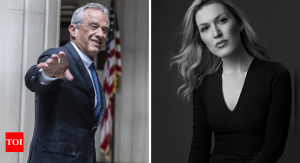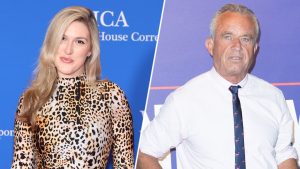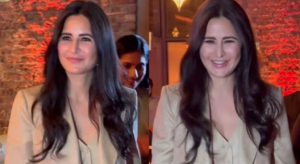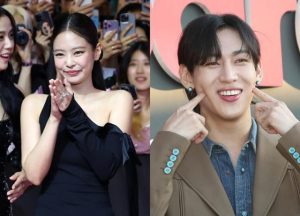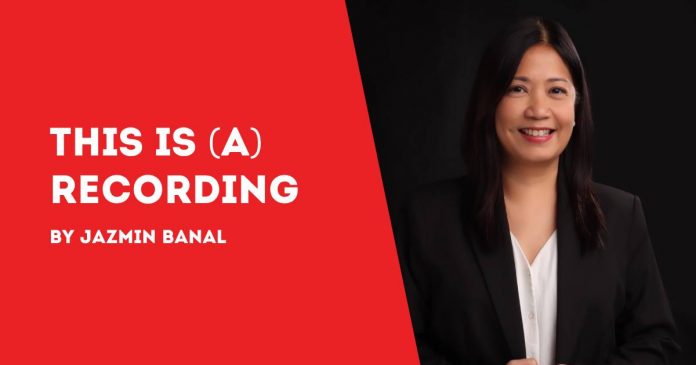
BEA ALONZO has had enough. The actress of more than 20 years is out to defend herself.
She filed three criminal complaints for cyber libel early this month, suing Cristy Fermin and Ogie Diaz as well as their co-hosts and an individual who supposedly pretended to be close to her.
According to her lawyer, these popular personalities made malicious and harmful statements against her on their online shows and showbiz columns, and this has been going on for years.
Suffering in silence is often the easy way, sometimes the only way, for someone who has been attacked. When the attack is targeted on one’s reputation and done publicly, the person can experience fear or trauma. It can make that person feel helpless or ashamed. An environment that avoids conflicts and prefers restraint further adds to the dilemma. I’ve seen it in the course of my work as a lawyer.
Celebrities are no exception. In the history of Philippine showbiz, insiders are rarely sued for libel. Just imagine the publicity relations nightmare if an actress were to call the very people who promote her shows as liars. This is why Bea Alonzo’s decision to go after well-known celebrity hosts, a big part of the local industry, is extraordinary.
Abroad, there’s more pushback against celebrity defamation, and tabloids and newspapers get sued for huge amounts. Keira Knightley sued the Daily Mail for implying she had an eating disorder. (The Daily Mail was ordered in 2007 to pay £3,000 and Keira donated the money to an eating disorder charity.) Katie Holmes sued the Star for suggesting she was a drug addict. (It was settled in 2011 for $50 million, and the Star donated to an organization supported by Katie.) Cameron Diaz sued the Sun for saying she was romantically involved with another man while dating Justin Timberlake. (The Sun was ordered in 2005 to pay damages and publish an apology.) Kate Winslet sued the Daily Mail for claiming that she was untruthful about her exercise routine. (The court awarded £25,000 in 2009.)
Even a Youtuber wasn’t spared. Rapper Cardi B sued a celebrity gossip blogger for saying that she was a cocaine user and a prostitute. (She was awarded more than $1.3 million in 2022.) The Youtuber admitted that she was after the hits, which meant millions of subscribers and ads and sponsorships.
To be sure, getting imprisoned for libel should not be the norm, and this is true regardless of the identity of the victim – an actress, a journalist, or a public official. The Philippines still hasn’t decriminalized libel despite the call by the United Nations to stop this “relic of the colonial past,” despite our very own Supreme Court’s pronouncement that “the constitutionality of criminalizing libel is doubtful.” But that — and the fundamental principle of a free press and the need for proportionality in imposing liability — ought to be reserved for another column.
What is plain to see is that we should not tolerate malicious and false actions. We enjoy the right to life, liberty, and property. Our reputation, the dignity and worth of a person, should be part of the equation.
In this age, with the prevalence of social media platforms and the allure of quick money, false information spreads faster, and faster than truthful news. It spreads like virus, preying on people, victims and observers alike, in a matter of minutes. If unstopped, this can lead to – assuming we’re not there yet – tolerance and indifference, a rising tendency to do harm. In short, a damaged society.
Celebrities standing up against defamatory behavior certainly throw a punch. With their stature, they can push publications to acknowledge harmful action, possibly re-think monetary motivations. With their resources, they can garner support for social causes and relevant organizations. With their influence, they can also connect with people who need some spark to take action.
In suing a celebrity publication, Kate Winslet said, “I was particularly upset to be accused of lying about my exercise regime and felt that I had a responsibility to request an apology … I strongly believe that women should be encouraged to accept themselves as they are, so to suggest that I was lying was an unacceptable accusation of hypocrisy.” It would’ve been great if Bea Alonzo, when she appeared before the Quezon City Prosecutors Office, also used her popularity for a similar discourse, if she gave a statement elevating the discussion beyond personal distress and loss. For now, we’d have to be content with her sworn vow not to keep silent./PN
